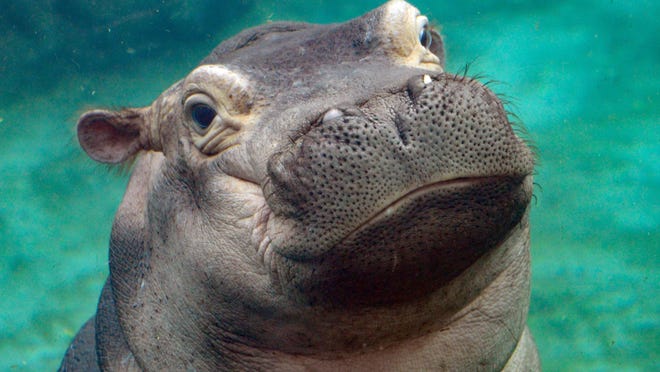COLUMBUS, Ohio — The Columbus Zoo and Aquarium announced Wednesday that a tiger died of complications with COVID-19.
The zoo announced on Facebook that a 14-year-old Amur tiger named Jupiter died Sunday, after developing pneumonia caused by COVID-19. According to National Geographic, certain types of animals including big cats are particularly susceptible to catching the coronavirus.
Jupiter was receiving long-term treatment for chronic underlying illnesses, which made him more susceptible to this virus, the zoo said in a release. Jupiter is the first and only animal to succumb to COVID-19 at the facility, according to the Columbus Zoo.
Jupiter started acting ill on June 22, the release said. He was not interested in eating, and was reluctant to stand, move or interact with keepers. When this continued into the next day, Jupiter was anesthetized for examination and treatment.
What we know about COVID-19 in animals:Lions, tigers, leopards all have tested positive for the virus
The zoo said the initial diagnosis was an infection and staff began treatment. Jupiter still did not improve. The following day, he was given additional treatments and received more testing. Although he appeared stable, Jupiter passed away overnight.
As a precautionary measure, the zoo is requiring staff working with cats, great apes and mustelids (otters and wolverines) to wear masks when within six feet of these animals. They are all more susceptible to contracting COVID-19.
The total amount of animals that have died after getting COVID-19 is not known, but there have been multiple reports throughout the pandemic at other zoos. In November, for example, three snow leopards at a Nebraska zoo died from COVID complications. And in October, an African lion at a zoo in Hawaii also died after contracting the virus.
November:Three snow leopards at Nebraska zoo die from COVID-19 complications
Experts note that most animals that contract the virus that causes COVID-19 in humans do recover. However, like humans, predisposed conditions can cause certain animals to experience more serious complications that could lead to death.
Jupiter was born at the Moscow Zoo on July 9, 2007 and arrived at the Columbus Zoo on March 19, 2015 after spending time at the Zoo Dvur Kralove in the Czech Republic. The zoo said he sired nine cubs, six of which were born at the Columbus Zoo, contributing to the future of this endangered species.
“Jupiter’s care team remembers him as a big and impressive tiger who loved fish, sleeping in the habitat’s cave, playing with cardboard boxes, and interacting with another favorite item—a 75-pound firehouse ‘plus sign’ that was heavy for keepers to move but something he carried around like it weighed nothing,” Columbus Zoo wrote in its Wednesday Facebook post. “Jupiter will be greatly missed.”
Follow Cole Behrens on Twitter at @Colebehr_report.
Contributing: Asha Gilbert, Wyatte Grantham-Philips, USA TODAY.


